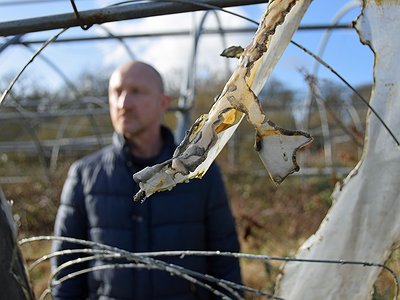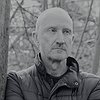Part 2
Take us through a day in your life, from a possible morning routine through to your work, please. Do you have a fixed schedule? How do music and other aspects of your life feed back into each other - do you separate them or instead try to make them blend seamlessly?
I like to rise early and my day starts with drinking tea and spiritual practices of reading, contemplation, reflection, and meditation. Then some form of physical exercise. These are all fundamental to my self-care. As is a good diet of food and a mental diet of not filling myself with unnecessary things. I don’t engage in social media and limit myself in current affairs. This is a personal choice that works for me. I enjoy a certain amount of solitude and try to choose who I spend my time with carefully. I am an introvert by nature so 1-1 interactions feed me. My life, work, creativity are becoming more integrated as I get older. Learning, reading, thinking about music are as much a part as making it. They feed into one another. Being alert to inspiration whilst getting on with the work is a discipline that I find gets results.
Can you talk about a breakthrough work, event or performance in your career? Why does it feel special to you? When, why and how did you start working on it, what were some of the motivations and ideas behind it?
An important breakthrough for me was when I sent Justin Watson some of my music at the time when Myspace was popular. He was really enthusiastic about it and said he would be starting a label which was to become Front & Follow. He was willing to release my stuff but that it would be a while, which I think was about a year away as he got the label going. This was all the encouragement I needed to start on new work for my first album ‘Curious Memories’. I knew I had time to explore and felt I had the support that it would be released. Justin’s enthusiasm, faith and generosity has always remained with me. I had made an EP during that time which got some positive reviews and I knew I could do something even better. So, I started making a whole album for the label release. I felt completely free to do whatever I wanted and this felt challenging and exhilarating. This experience still feels important as it taught me that perseverance and having a sense of wonder can be strong qualities to get something completed, whilst enjoying the creative journey with all its twists and turns!
There are many descriptions of the ideal state of mind for being creative. What is it like for you? What supports this ideal state of mind and what are distractions? Are there strategies to enter into this state more easily?
I don’t feel that hoping or waiting for the ‘ideal state of mind’ is a useful approach for me. Noticing resistances to working is useful information but also trying to get on with something is beneficial and practical. By approaching work with whatever is going on in life, feels useful, genuine, and congruent. When the state of ‘flow’ occurs then it is a gift and one I try to embrace. My meditation practice feeds into all I do, but it’s not a panacea for all difficulties. It just offers me a place to touch into, a reference point that feels more stable than doubts and confusion, all of which are all very normal in the creative process. Entering into the spirit of creativity is what keeps me connected and why I do this.
Music and sounds can heal, but they can also hurt. Do you personally have experiences with either or both of these? Where do you personally see the biggest need and potential for music as a tool for healing?
Music has supported me throughout my life. Whether that’s listening to others’ music or making my own. I have found myself listening to certain music repeatedly during challenging times. One example would be ‘On land’ by Brian Eno. I listened to that whole album every night for weeks, maybe months during a period of struggle. For me this wasn’t about soothing but being able to remain with the unknown and this particular piece worked without interfering with the process. It became a backdrop to my own experiences. At certain times, I also enjoy listening to extreme noise music and find this cleansing and healing like an antiseptic to the smog of human life. So, the choice is with the listener as to what it is used for. Often, I make a piece of music and then it informs me what it is about retrospectively. But that doesn’t feel that important for me to identify what it may or may not be offering. My experience of music as a tool for healing comes from the repeated listening which I spoke of. There is a deepening with such experiences that can offer a new perspective.
There is a fine line between cultural exchange and appropriation. What are your thoughts on the limits of copying, using cultural signs and symbols and the cultural/social/gender specificity of art?
Intention is key here for me. In what spirit are such things done. Sampling and plunderphonics are something that interested me when I started releasing music. But there needs to be a space for something new to flow into what is being created. So, I think that remains a personal judgement as to what the attitude is behind such work.
Our sense of hearing shares intriguing connections to other senses. From your experience, what are some of the most inspiring overlaps between different senses - and what do they tell us about the way our senses work?
The stimulation of the senses through sound, smell, feelings, thoughts, memory, and fantasy are what transport us into different realms. Memories aren’t facts or the truth. So, in similar ways imaginings and fantasies could be seen as unformed or fluid memories. The setting and the context of something we are listening to can radically alter how we perceive a piece of music, and so will the response be to what that evokes in us. For me it shows me that we are a mystery to ourselves as human beings. Some things need to remain in this territory to keep our sense of wonder alive.
Art can be a purpose in its own right, but it can also directly feed back into everyday life, take on a social and political role and lead to more engagement. Can you describe your approach to art and being an artist?
Art can enable the inner life to be expressed outwardly. It can act as a mirror for the soul or the eternal or whatever words you choose to use. Also it can be a playground for expression without the need to fully explain something, as it may not be fully understandable and therefore it deserves its own space and time to just be. My approach to art is, what it is that I find interesting in something without being able to put my finger on it. Can I follow this idea through to some kind of ‘conclusion’ or resting place where some kind of awareness has expanded in me that touches on lesser explored terrain? All these kinds of experiences feed back into my life in all aspects. So, at best a blurring of boundaries in a positive way is occurring and integration is taking place. That I see as a positive force for change.
What can music express about life and death which other forms of art may not?
We know from history that music has been used to express such universal themes for thousands of years in all sorts of rituals and celebrations. It is a language of the soul. Music exists in ‘clock’ time as does life. It begins and ends within a certain amount of time. As human beings, we have a limited lifespan that begins and ends. And also, whatever may continue in the next phase. So, there is something about this cycle and the eternal that music is very good at expressing.






